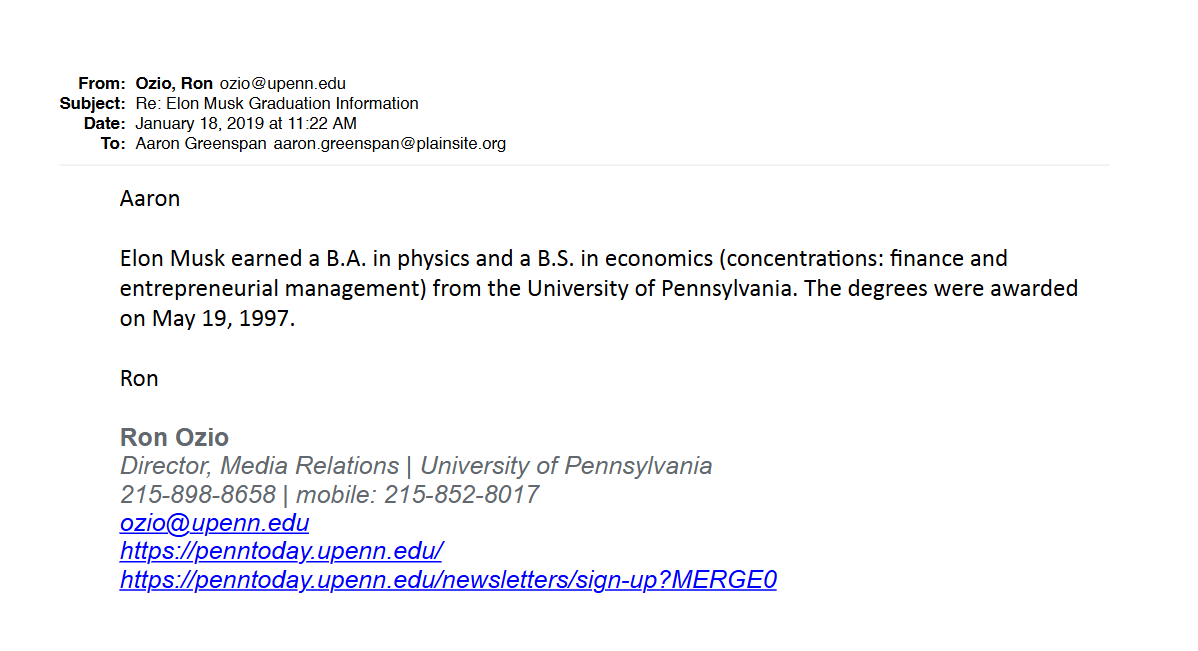General Discussion
Related: Editorials & Other Articles, Issue Forums, Alliance Forums, Region ForumsHas anyone checked on Elon Musks immigration status? Is he an American citizen now?
I know he stated in an article once that his immigration was a gray area... He was not brought here as a child.. so he cannot be a dreamer.. Did he overstay his status and then work his way in?? Kind of curious to me why he would call his immigration status a gray area,..
Omnipresent
(6,421 posts)WhiskeyGrinder
(24,029 posts)2naSalit
(93,115 posts)Revocable?
WhiskeyGrinder
(24,029 posts)A. Person Procures Naturalization Illegally
A person is subject to revocation of naturalization if he or she procured naturalization illegally. Procuring naturalization illegally simply means that the person was not eligible for naturalization in the first place. Accordingly, any eligibility requirement for naturalization that was not met can form the basis for an action to revoke the naturalization of a person. This includes the requirements of residence, physical presence, lawful admission for permanent residence, good moral character, and attachment to the U.S. Constitution.[1]
Discovery that a person failed to comply with any of the requirements for naturalization at the time the person became a U.S. citizen renders his or her naturalization illegally procured. This applies even if the person is innocent of any willful deception or misrepresentation.[2]
B. Concealment of Material Fact or Willful Misrepresentation[3]
1. Concealment of Material Fact or Willful Misrepresentation
A person is subject to revocation of naturalization if there is deliberate deceit on the part of the person in misrepresenting or failing to disclose a material fact or facts on his or her naturalization application and subsequent examination.
In general, a person is subject to revocation of naturalization on this basis if:
The naturalized U.S. citizen misrepresented or concealed some fact;
The misrepresentation or concealment was willful;
The misrepresented or concealed fact or facts were material; and
The naturalized U.S. citizen procured citizenship as a result of the misrepresentation or concealment.[4]
This ground of revocation includes omissions as well as affirmative misrepresentations. The misrepresentations can be oral testimony provided during the naturalization interview or can include information contained on the application submitted by the applicant. The courts determine whether the misrepresented or concealed fact or facts were material. The test for materiality is whether the misrepresentations or concealment had a tendency to affect the decision. It is not necessary that the information, if disclosed, would have precluded naturalization.[5]
2. Membership or Affiliation with Certain Organizations
A person is subject to revocation of naturalization if the person becomes a member of, or affiliated with, the Communist party, other totalitarian party, or terrorist organization within five years of his or her naturalization.[6] In general, a person who is involved with such organizations cannot establish the naturalization requirements of having an attachment to the Constitution and of being well-disposed to the good order and happiness of the United States.[7]
The fact that a person becomes involved with such an organization within five years after the date of naturalization is prima facie evidence that he or she concealed or willfully misrepresented material evidence that would have prevented the person’s naturalization.
C. Other than Honorable Discharge before Five Years of Honorable Service after Naturalization
A person is subject to revocation of naturalization if:
The person became a U.S. citizen through naturalization on the basis of honorable service in the U.S. armed forces;[8]
The person subsequently separates from the U.S. armed forces under other than honorable conditions; and
The other than honorable discharge occurs before the person has served honorably for a period or periods aggregating at least five years.[9]
2naSalit
(93,115 posts)There's a problematic concern regarding the five year limit on joining nefarious organizations. Hmm. Wonder when he was naturalized.
travelingthrulife
(882 posts)So he lied then and he lied to qualify for naturalization.
Celerity
(46,554 posts)Elon Musk went to Queen’s University in Kingston, Ontario, Canada, and then transferred in to the University of Pennsylvania in Philadelphia, where he received bachelor’s degrees in physics and economics in 1997. He began graduate school in physics at Stanford University but left after several days to focus on being an entrepreneur.
asm128
(234 posts)And was still here on a student visa when he didn't attend graduate school and worked instead, which was a violation of a J1 visa.
(Elon) Musk arrived in Palo Alto in 1995 for a graduate degree program at Stanford University but never enrolled in courses, working instead on his startup,” according to the Washington Post. That means Musk committed at least two immigration violations. First, by failing to take courses, he violated his student status. Second, he did not have authorization to work legally in the United States.
https://www.forbes.com/sites/stuartanderson/2024/10/27/what-elon-musk-working-illegally-says-about-the-immigration-system/
Celerity
(46,554 posts)they said:
He did enroll (and eventually earned two degrees) at Penn, which was the uni he initially came in on his student visa for in 1992.
https://www.plainsite.org/documents/tbdmox/2019-email-from-the-university-of-pennsylvania-confirming-elon-musks-physics-degree/

Celerity
(46,554 posts)Johonny
(22,167 posts)So it won't matter. There are no laws for them anymore.
DavidDvorkin
(19,917 posts)He has denied the report that he violated the terms of his student visa. I bet there will be no investigation.